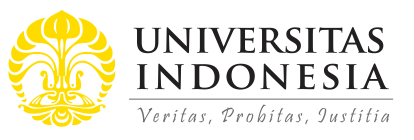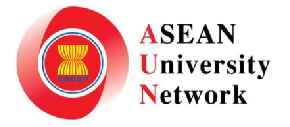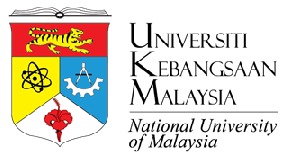
Abstract
Women, as part of a community, have a limited role in developing themselves and getting various opportunities in the professional domain. Some women move to a community to conduct productive activities, such as the Kota Pelangi Community in the Pancoran subdistrict of South Jakarta. They consist of homemakers who are still productive and have started various small, processed food businesses. However, their efforts are constrained by the quality of processed food products and they have not been able to compete with the market. Branding or updating a brand can be a long process, but it requires considerable input and creativity. Brands that go through the collective branding process too quickly risk being unprofessional and not being taken seriously. This community service program assists with licensing and branding the community’s product. The first aspect is improving product quality through innovation and the use of technology. Next is branding development and increased sales packaging through e-commerce marketing assistance, which includes displaying products in various bazaars and exhibitions. It is also necessary to conduct business financial management and bookkeeping training. Last is the provision of aid for licensing and capital management. The program was conducted to encourage and increase entrepreneurial women's productivity in the Pancoran subdistrict to develop skills, including soft skills, to be economically and socially independent.
References
Ahmad, S. Z. (2012). Micro, Small and Medium-Sized Enterprises Development in the Kingdom of Saudi Arabia: Problems and Constrains. World Journal of Entrepreneurship, Management and Sustainable Development, 8, 217–232. https://doi.org/10.1108/20425961211276606
Alshgawi, M. (2015). Assessing Women Entrepreneurship in Arab Saudi: Strategies for Success. Ajman Journal of Studies and Research, 14, 155–185.
Castriota, S., & Delmastro, M. (2010). Individual and Collective Reputation: Lessons from the Wine Market (in Italian). L'Industria, 31(1), 149–172.
http://dx.doi.org/10.2139/ssrn.1349992
Costanigro, M., McCluskey, J., & Goemans, C. (2010). The Economics of Nested Names: Name Specificity, Reputations, and Price Premia. American Journal of Agricultural Economics, 92(5), 1339–1350. Stable URL:
https://www.jstor.org/stable/40931090
Damayanti, Y., Suandi, & Kernalis, E. (2015). Pelatihan dan Penyuluhan pembuatan Telur Itik Asin dalam Upaya Pengembangan Kewirausahaan Baru di Desa Tanjung Harapan Cupak Kecamatan Danau Kerinci Kabupaten Kerinci. Jurnal Pengabdian pada Masyarakat, 30(4), 36–42.
Djumena, E. (2020). Dari 64,1 Juta UMKM, Baru 10.632 yang Mengurus Merek Dagang. Retrieved November 12, 2020, from kompas.com:
DPR RI. (1992). Undang-undang republik Indonesia Nomor 19 Tahun 1992 Tentang Merek. http://www.dpr.go.id/dokjdih/document/uu/635.pdf
Escalas, J. E., & Bettman, J. R. (2005). Self-Construal, References Groups, and Brand Meaning. Journal of Consumer Research, 32, 378–389.
https://doi.org/10.1086/497549
Gupta, N., & Mirchandani, A. (2018). Investigating Entrepreneurial Success Factors of Women-Owned SMEs in UAE. Management Decision, 56.
https://doi.org/10.1108/MD-04-2017-0411
Hakenes, H., & Peitz, M. (2008). Umbrella Branding and the Provision of Quality. International Journal of Industrial Organization, 26(2), 546–556.
https://doi.org/10.1016/j.ijindorg.2007.03.004
Hakenes, H., & Peitz, M. (2009). Umbrella Branding and External Certification. European Economic Review, 53(2), 186–196.
https://doi.org/10.1016/j.euroecorev.2008.03.006
Hasanah, I. (2017, February). Mendorong Kebijakan Publik Profeminisme melalui Gerakan Gender Watch: Studi di Kabupaten Gresik. Jurnal Perempuan, 22(1), 35–42. http://indonesianfeministjournal.org/index.php/IFJ/article/viewFile/157/159.
Hassan, B., & Mohamed, B. (2015). Role of SMEs in the Economic and Social Development: Case of Terroir Products in Souss Massa Draa Region (Marocco). Advances in Economics and Business, 3(8), 340–347.
http://www.academia.edu/download/42530343/Book_of_Proceedings_esd_NYC_2014_Published1.pdf#page=706
Haugh, H. (2007). Community-led Social Venture Creation. Entrepreneurship: Theory & Practice, 31(2), 161–182. https://doi.org/10.1111/j.1540-6520.2007.00168.x
Holgersson, M. (2013). Patent Management in Entrepreneurial SMEs: A Literature Review and An Empirical Study of Innovation Appropriation, Patent Propensity, and Motives. R&D Management, 43(1), 21–36. https://doi.org/10.1111/j.1467-9310.2012.00700.x
Hubeis, M., Purwanto, B., Dewi, F. R., Widyastuti, H., & Febtyanisa, M. (2015). Strategi Pengembangan UMKM Pangan yang Berdaya Saing di Indonesia. Prosiding Seminar Hasil-hasil PPM IPB, I, pp. 126–143. http://lppm.ipb.ac.id/wp-content/uploads/2017/04/B504.pdf
Huck, S., & Lunser, G. K. (2009). Group Reputations: An Experimental Foray. Journal of Economic Behavior and Organization, 73(2), 153–157.
https://doi.org/10.1016/j.jebo.2009.09.001
Huggins, R., & Weir, M. (2012). Intellectual Assets and Small Knowledge-Intensive Business Service Firms. Journal of Small Business Enterprise Development, 19(1), 92–113. https://doi.org/10.1108/14626001211196424
Indiworo, H. E. (2016). Peran Perempuan dalam meningkatkan Kinerja UMKM. Jurnal Equilibria Pendidikan, 1(1), 40–58. https://doi.org/10.26877/ep.v1i1.1806
Iswanaji, C. (2016). Faktor-faktor Penentu Penguatan Ekonomi terhadap Keunggulan Daya Saing Produk Batik di Kelurahan Kramar Selatan dengan Pendekatan One Village One Product. Prosiding Seminar Nasional Strategi pengembangan UMKM dan Industri Kreatif Sebagai Mesin Pertumbuhan Ekonomi Indonesia, (pp. 461–475).
Jensen, K. (2015). Do's and Dont's of B@B Branding. Retrieved from https://www.bopdesign.com/bop-blog/2015/03/dos-dontks-of-b2b-branding/
Kampmeier, C., & Simon, B. (2001). Individuality and Group Formation: The Role of Independence and Differentiation. Journal of Personality and Social Psychology, 448-–462. https://doi.org/10.1037/0022-3514.81.3.448
Lukito, Y. N., & Arvanda, E. (2018). Diffusing signage as visual communication in the implementation of Pico Hydro Technology in Batu Roto, Bengkulu Province, Indonesia. ASEAN Journal of Community Engagement, 2(1), 87–96. https://doi.org/10.7454/ajce.v2i1.108
McQuade, T., Salant, S., & Winfree, J. (2012). Regulating an Experience Good Produced in the Formal Sector of a Developing Country when Consumers cannot Identify Producers. Review of Development Economics, 16(4), 512–526.
https://doi.org/10.1111/rode.12001
Ng, H. S., & Kee, D. H. (2012). The Issues and Development of Critical Success Factors for the SMEs in a Developing Country. International Business Management, 6, 680–691. https://www.researchgate.net/profile/Hee_Song_Ng/publication/269648071_The_Issues_and_Development_of_Critical_Success_Factors_for_the_SME_Success_in_a_Developing_Country/links/5856377608aeff086bfa0dad.pdf
Nur, F., Sarwoprasodjo, S., & Hubeis, M. (2016). Kecepatan Adopsi Program Fasilitasi Hak Kekayaan Intelektual Merek Dagang untuk Usaha Kecil Menengah. Jurnal Manajemen IKM, 11(2), 183–190. https://doi.org/10.29244/mikm.11.2.183-190
Octavia, A., Masriani, I., & Rosita, S. (2015). Pemberdayaan Masyarakat melalui Optimalisasi Program Bank Sampah dengan Bantuan Teknis dan Manajemen Usaha pada KSM Limbah dan Maidanul Ula Kota Jambi. Jurnal Pengabdian pada Masyarakat, 30(3), 40–49.
Omri, A., Ayadi-Frikha, M., & Bouraoui, M. A. (2015). An Empirical Investigation of Factors Affecting Small Business Success. Journal of Management Development, 34, 1073–1093. https://doi.org/10.1108/JMD-07-2013-0088
Santoso, H., Anita, M., & Mayanti, D. (2018). Community Economic Empowerment through Cultivation of Enceng Gondok Program Using Community Engagement Program Approach in West Aceh Regency Post Conflict and Natural Disaster Earthquake and Tsunami 2004. Jurnal Pengabdian Kepada Masyarakat, 3(2), 161–168. https://doi.org/10.22146/jpkm.28974
Sardjono, A., Prasatyo, B. A., & Larasati, D. G. (2013). Pelaksanaan Perlindungan Hukum Merek untuk pengusaha UKM Batik di Pekalongan, Solo, dan Yogyakarta. Jurnal Hukum dan Pembangunan, 44(4), 496–517.
http://dx.doi.org/10.21143/jhp.vol43.no4.1497
Sari, D. A., Hakiim, A., Efelina, V., Asiah, N., & Sukanta. (2018, September). PKM Kelompok Usaha Dodol kabupaten Bekasi Jawa Barat. Jurnal Abdimas, 5(1), 1–5. https://doi.org/10.31227/osf.io/hgzb9
Satiyawan, D. (2008). Pelaksanaan Undang-undang Merek pada UKM (Usaha Kecil Menengah) Kecamatan Ceper Kabupaten Klaten dalam rangka perlindungan Hukum dari Tindakan Pemalsuan Merek. Surakarta: Universitas Muhammadiyah Surakarta.
Sihombing, E. N. (2018, December). Kebijakan Afirmatif Bagi Usaha Mikro, Kecil dan Menengah di Bidang Kekayaan Intelektual. Jurnal Rechts Vinding, Media Pembinaan Hukum Nasional, 7(3), 427–444.
http://dx.doi.org/10.33331/rechtsvinding.v7i3.273
Sugiyarti, Y. (2016). Perlindungan Merek Bagi Pemegang Hak Merek Ditinjau dari Undang-undang Nomor 15 Tahun 2001 Tentang Merek. Jendela Hukum, 3(1), 32-41. https://doi.org/10.24929/fh.v3i1.354
Sukmadewi, Y. D. (2017). Sosialisasi Legalitas dan manajemen Usaha Bagi Pelaku Usaka UMKM di Kecamatan pendurung Kota Semarang. Semarang: Universitas Semarang.
Thoma, J., & Bizer, K. (2013). To Protect or Not to Protect? Modes of Appropriability in the Small Enterprise Sector. Research Policy, 42, 35–49.
https://doi.org/10.1016/j.respol.2012.04.019
Trade-Related Aspects of Intellectual Property Rights (TRIPS). (1994). Agreement on Trade-Related Aspects of Intellectual Property Rights.
Wediawati, B., & Setiawati, R. (2015). IBM Kelompok Usaha Bersama Perempuan Kepala Keluarga (KUBE-PEKKA) di Kecamatan Telanaipura Kota Jambi. Jurnal Pengabdian pada Masyarakat, 30(1), 10–17.
http://portalgaruda.fti.unissula.ac.id/index.php?ref=browse&mod=viewarticle&article=357223
World Intellectual Property Organization (WIPO). (2006). membuat Sebuah Merek, Pengantar Merek untuk Usaha Kecil dan Menengah.
Zahroh, T. R. (2017). Peran UMKM Konveksi Hijab dalam meningkatkan Kesejahteraan Ekonomi Perempuan, Studi Kasus Konveksi Hijab di Desa Pasir Kecamatan Mijen Kabupaten Demak. Semarang: Universitas Islam Negeri Walisongo.
Recommended Citation
Widiastuti, Tuti; Asiah, Nurul; and David, Wahyudi
(2020).
Forming a collective Brand: Women’s community small medium enterprises and intellectual property rights.
ASEAN Journal of Community Engagement, 4(2), 452-467.
Available at: https://doi.org/10.7454/ajce.v4i2.1059







